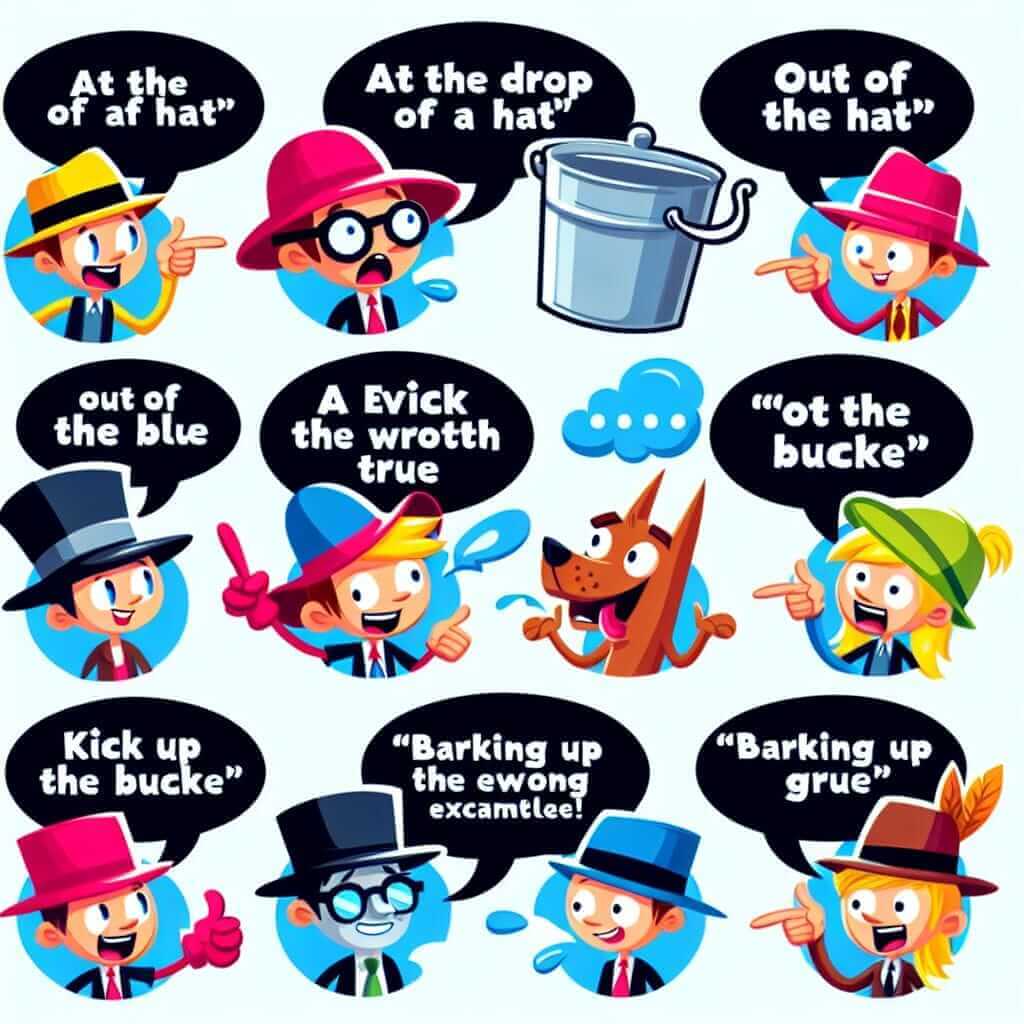“The whole nine yards” is an idiom frequently used in English to convey the idea of doing something fully and comprehensively. This phrase can be particularly useful in enriching your vocabulary for the IELTS exam. Understanding its usage can enhance your ability to communicate more effectively and colorfully.
Synonyms and Antonyms:
- Synonyms:
- The full works /ðə fʊl wɜːrks/ (noun) – Meaning: Everything possible or available; Example: “We ordered the full works at the restaurant, including appetizers, main courses, and desserts.”
- Everything but the kitchen sink /ˈevrɪθɪŋ bʌt ðə ˈkɪʧən ˌsɪŋk/ (phrase) – Meaning: Almost everything possible or imaginable; Example: “They packed everything but the kitchen sink for their camping trip.”
- The whole shebang /ðə hoʊl ʃɪˈbæŋ/ (noun) – Meaning: The entire thing; Example: “We organize the whole shebang for the wedding, from the venue to the catering.”
- Entirety /ɪnˈtaɪərti/ (noun) – Meaning: The whole of something; Example: “The entirety of their plan was revealed during the meeting.”
- Antonyms:
- Partially /ˈpɑːrʃəli/ (adverb) – Meaning: To some extent, but not completely; Example: “The room was only partially cleaned by the time the guests arrived.”
- Incomplete /ˌɪnkəmˈpliːt/ (adjective) – Meaning: Not finished or complete; Example: “Due to a lack of data, the report remained incomplete.”
- Fragment /ˈfræɡmənt/ (noun) – Meaning: A small part broken or separated from something; Example: “We only had fragments of information about the incident.”
Now, let’s dive deeper into “The whole nine yards” and its relevance in IELTS.
Meaning and Pronunciation of “The Whole Nine Yards”
“The whole nine yards” /ðə hoʊl naɪn jɑːrdz/ is an idiom that implies doing something to the fullest extent or including everything possible. The phrase is often used to emphasize thoroughness, completeness, or a comprehensive approach in various contexts.
Examples:
-
In Everyday Conversation:
- “When Jane throws a party, she goes the whole nine yards with decorations, food, and entertainment.”
-
In Business:
- “The company provided the whole nine yards of service, from initial consultation to after-sales support.”
-
In Writing:
- “The author went the whole nine yards to ensure historical accuracy in his novel.”
Popularity in IELTS
In the IELTS exam, idiomatic expressions like “the whole nine yards” can help candidates achieve higher scores in speaking and writing sections due to their ability to convey complex ideas succinctly and colorfully.
Usage in Speaking:
Using idioms in the Speaking test can reflect natural and fluent language skills. For example:
- Question: “Can you describe a time when teamwork was important?”
- Answer: “Absolutely, during our project at the university, we ensured we went the whole nine yards by thoroughly dividing tasks, maintaining open communication, and supporting each other to meet our objectives.”
Usage in Writing:
In the Writing test, idioms can enhance the quality of essays by making them more engaging:
- Task Example: “Some people believe that good teamwork is crucial for success. To what extent do you agree?”
- Essay Segment: “Indeed, the whole nine yards approach is vital in creating a synergistic team environment where each member’s strengths are fully leveraged to achieve collective goals.”
Combinations and Variants
“The whole nine yards” can be effectively combined with different words to vary its usage:
-
In Descriptions:
- “They went the whole nine yards with their wedding preparations.”
-
In Processes:
- “The renovation project was extensive; they did the whole nine yards, including new roofing, plumbing, and landscaping.”
-
In Experiences:
- “The tour package was comprehensive, offering the whole nine yards of experiences from city tours to countryside excursions.”

Related Idiomatic Expressions
Enriching your vocabulary with related idioms can be highly beneficial. Here are some idiomatic expressions similar to “the whole nine yards”:
-
“Go the extra mile”:
- Meaning: To make a special effort to achieve something.
- Example: “The teacher went the extra mile to ensure every student understood the lesson.”
- Learn more about “Go the extra mile”
-
“Leave no stone unturned”:
- Meaning: To try every possible course of action.
- Example: “In solving the mystery, the detective left no stone unturned.”
- Explore “Leave no stone unturned”
-
“Spare no expense”:
- Meaning: To spend as much money as needed to achieve a desired result.
- Example: “For their wedding, they spared no expense to make it an unforgettable event.”
-
“Pull out all the stops”:
- Meaning: To do everything possible to make something happen.
- Example: “To secure the contract, the company pulled out all the stops.”
Conclusion
Understanding and utilizing idioms like “the whole nine yards” can significantly improve your IELTS performance by making your speech and writing more dynamic and engaging. Practice using these idioms in various contexts to become more comfortable and capable of integrating them naturally into the IELTS exam.
Remember, achieving a high score in IELTS involves not only knowing the language but also being able to use it effectively and creatively. So, don’t hesitate to go the whole nine yards in your preparation!
For more vocabulary tips and practice materials, visit IELTS Vocabulary and enhance your learning experience.